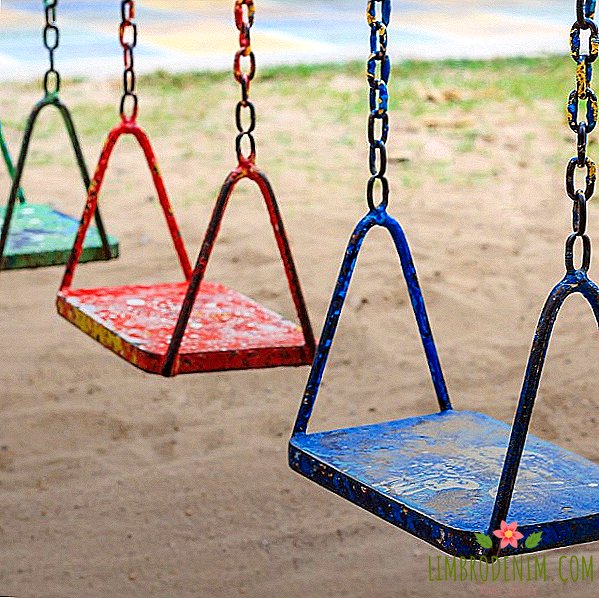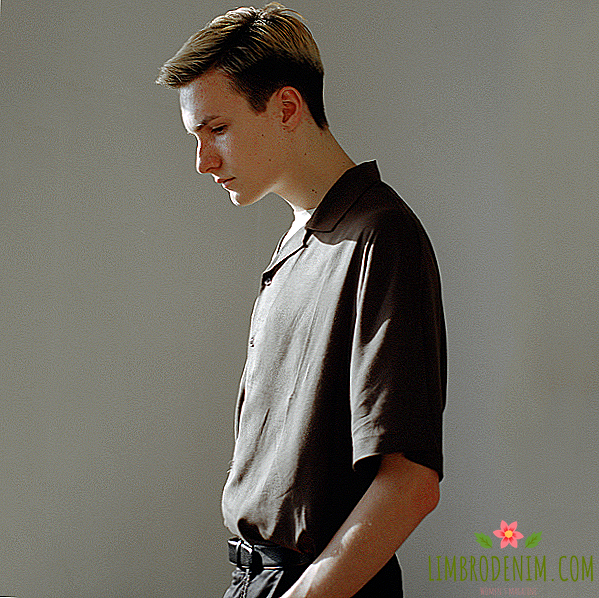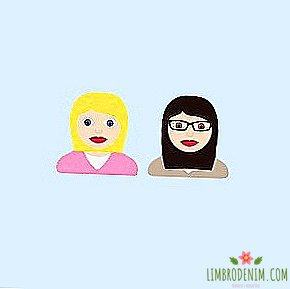“I don’t go out of the house, I don’t work with my hands”: How I live with “Stephen Hawking's disease”
ON SIDE AMIOTROPHIC SCLEROSIS (ALS) many learned because of Stephen Hawking's death - he had lived with the illness for fifty-five years, and even before the illness was devoted to the Ice Bucket Challenge flash mob. ALS is an incurable progressive disease, in which motor neurons die in the brain and spinal cord, because of which a person first appears weak in all limbs, then he loses the ability to move his arms and legs, he is gradually paralyzed, his speech is impaired, he loses the ability to swallow food and breathe. A disease can have different causes: genetic, autoimmune (scientists are more inclined to autoimmune). But there is no definite answer why this rare disease appears (it occurs in about one person per 20 thousand people). Life expectancy with ALS is on average three to five years from the time of diagnosis.
We talked with Nailia Bikkulova about how her life has changed since she was diagnosed.

"OK, bye"
I am forty five years old, I am a pediatrician. For the last two years she worked as the head of the pediatrics department of a children's clinic. I have a husband and a nineteen year old daughter. She is studying at a theater institute, but now she has temporarily gone to work as a hotel administrator, given our situation and the fact that I do not work. Husband is also a doctor in the clinic.
I was diagnosed in August 2017 at the Research Institute of Neurology. But I got sick earlier - in September 2016. There was a weakness in the right hand, but I did not pay attention to it and continued to work, work with my family, home. When my condition began to deteriorate and I stopped writing at all with my right hand, I turned to the Institute of Neurology - they immediately diagnosed after an examination.
What did I feel when I first heard the diagnosis? At first she didn’t believe, and then shock came. When I was diagnosed, I could still work: I only had slight difficulties with my right hand. I thought I could handle it. I will not say that I cried a lot or frantically, I was just devastated.
I used to work from eight to eight, but now I’m at home, I can hardly move around the apartment and can’t carry out normal hygiene procedures
I left work in March, when it became quite difficult to talk - it was already impossible to communicate with patients, with colleagues. How has life changed? There was less communication, I became less active. Probably, my outlook has changed: I began to pay more attention to my daughter, my husband, realizing that they also need my support. Of course, life has become different: if I used to work from eight to eight, now I’m at home, I can hardly move around the apartment and can’t do my usual hygienic procedures.
If in May I could still go out on my own, talk, do something around the house, cook, now I speak with difficulty, I can’t do household chores. On Tuesdays, thanks to the fund, a replacement nurse comes to me (a nurse who can temporarily replace relatives or a nurse who cares for a person around the clock. - Approx. Ed.). And so everything rests on the shoulders of the family: husband and daughter.
Friends gradually became less: people, having learned about such a diagnosis, just somehow stop talking, only the family remains. If earlier my phone didn’t stop talking for a second, during the day there were more than a hundred calls, now it’s three or four calls a day.
The other day I called, as I thought, a close friend. "How are you?" - "Fine". - "And how do you feel?" - "I do not go out of the house, I do not work with my hands." - "What, is ALS confirmed?" - "Yes, it was confirmed." - "OK, bye". She hung up, and that was the end of our conversation. Maybe people are afraid, and maybe everyone has their own problems and they are busy with their lives.

She is incurable
When you come to a neurologist's appointment at the polyclinic and say that you have ALS, you understand that he has a panic in his eyes, he is in principle not familiar with this diagnosis and does not know what to do with it. His first desire is for me to quickly leave the office.
Stephen Hawking lived in the UK, where social assistance is more developed than in Russia — in Europe, as far as I know, it’s generally better with equipment and care facilities, such as sisters’s home visits, with supervision. But there is no medicine that could be completely cured anywhere — not in Europe, not in Russia, or in China. There is only supportive therapy. This, of course, immediately knocks the ground out from under his feet. The first thing you read about this disease is that it is incurable.
There is a French drug, it slows down the course of the disease, but it is not registered in Russia. I have to buy it through my acquaintances - thanks to my friends, they provided me for a year. The rest of the treatment is only supportive: physical therapy, music therapy, help of a speech therapist. The main thing, of course, is physical therapy here: foundation staff (ergotherapists, rehabilitologists) give instructions and we independently work at home.
ALS - a disease in which if your hand does not work, it will never work
When in May I received a disability, the district commission gave me a third group - a worker, although both hands practically did not work for me and I had difficulty moving. When I asked how I could work, they said: "As you wish, so work." And this is taking into account that they communicated with the doctor, the head of the department, her colleague - I imagine how they relate to other patients. I appealed to the city commission, because, as a doctor, I understood that there should not be a third group. At the city commission, the neurologist already had no doubts - the newsletter of the foundation helped. I was given a second group.
As far as I understand, the staff does not always know the details of this diagnosis on the medical commission that issues the disability group. For example, after a stroke a person can be rehabilitated (although, of course, there are different stages): there are drugs, there is intensive medical care, physical therapy. And ALS is a disease in which if your hand does not work, it will never work. When I told the doctor at the commission that my hand does not rise, she told me: “You don’t want to raise it, so it’s not working for you. People recover from a stroke, and you don’t want to recover after some ALS.” When she said this, I realized that she did not understand the disease, and suggested that she simply read about her.
But my chief doctor treated me very warmly and supported me in everything. It is also important that I myself am a doctor and at least know what door to knock. But even this does not save, because the desire to help patients in city clinics is very rare. Well, if a person has the strength and he fights - and if he has nothing to do with medicine, it turns out to be alone with the illness.

"We know better"
When my condition seriously deteriorated in January of this year — my right leg began to refuse, I began to walk worse, coordination began to be disturbed — I began to search the Internet for people like me and information about what I should do. Accidentally discovered the Live Now Foundation; I sent them a request in the evening, and in the morning the coordinator called me back and offered help. Since then, we communicate with them very closely: they call, ask how things are, invite to events, resent when I can't come (they say that it is important to force yourself to go out, not to dwell on your illness). You know that you will not recover, but at least you understand that you can go somewhere in a difficult moment and get competent help. They will not only see you asking for a person with a disease - they will also lend a shoulder, give you qualified information, help with medical equipment, and hold recreational activities.
When the coordinator called me and said that a substitute nurse would come to me, I was confused: "I can still walk around the apartment myself, pour myself some tea, warm something, and in general I have a husband and daughter. I don't need a nurse." She said: "We know better, need or not." She turned out to be right - in fact, I was afraid, because I didn’t know what to do with this man at home. In principle, I was not accustomed to depend on someone, I was used to, on the contrary, helping people. But when she came, it was clear that he was a very kind person and she was ready to help disinterestedly. I lay a mountain of undressed linen, she offered to stroke him. I said that it was not necessary, and she replied: "Let the husband come home in the evening and rest, and not be engaged in linen". Now she cooks food, walks with me - I don’t go outside alone. When she came, I immediately felt that she was more to me than a friend - although I saw this man for the second time in my life.
We worked with a music therapist. I was included in an experiment that investigated the effects of music therapy on breathing and swallowing. The therapist came twice a week, helped to strengthen the muscles and ligaments that are involved in swallowing, chewing, breathing. It is very motivated: once undergoing research, it means that something else can be done. And then the performance improved, I began to speak better, breathe easier.
How to treat diabetes, asthma, heart defects, hypertension, everyone knows, and very few
At the foundation conferences, we are told about drugs that are not yet registered, but are already being tested. Once a month, on Saturdays, schools are held for patients and their relatives. There are consultations of neurologists who are knowledgeable about the problem, and now the foundation has organized several sessions with a rehabilitation physician. This is valuable: how to treat diabetes, asthma, heart defects, hypertension, everyone knows, and how to support ALS are very few.
I am still not at the stage when medical devices are needed, but I saw that many patients receive equipment from the foundation - they install gastrostomy tubes (special tubes to feed right into the stomach for patients who can no longer swallow food. - Approx. ed.), allocate breathing apparatus, functional beds, mowers, saliva ejector, strollers. It all costs a lot of money.
Psychologists who specialize in supporting families of people with ALS work with us. A very heavy load falls on their relatives, they do not know how to behave. After the diagnosis you get depressed. Our volunteers and coordinators do not let them "hang" - they try to help us live further and help our loved ones.

The Live Now Foundation is one of the few in Russia that helps patients with amyotrophic lateral sclerosis. Recently it became known that the foundation was threatened with closure, having lost a major benefactor who had supported the foundation from the very beginning. The organization has announced a fundraiser - on the fund page you can make a transfer or make a regular donation.
Photo: Wikimedia Commons (1, 2, 3)





